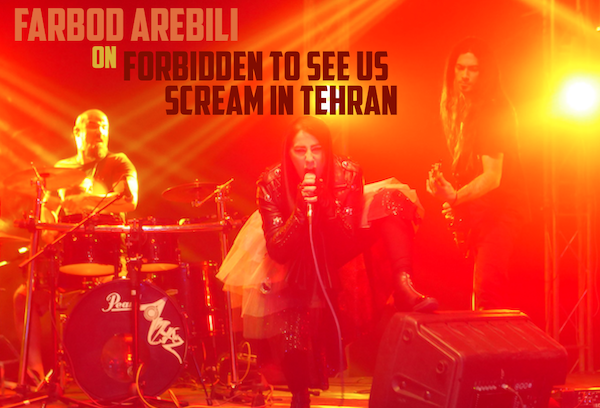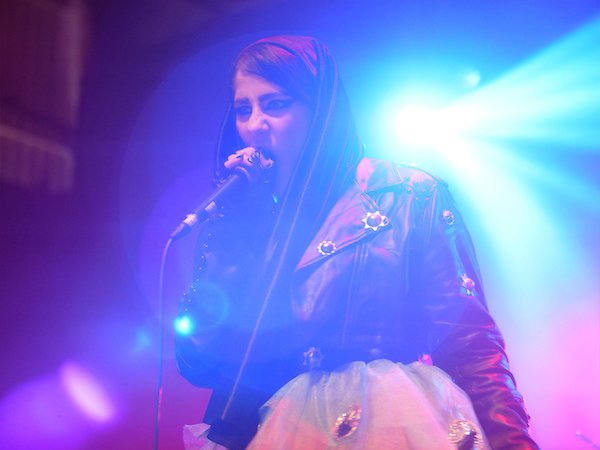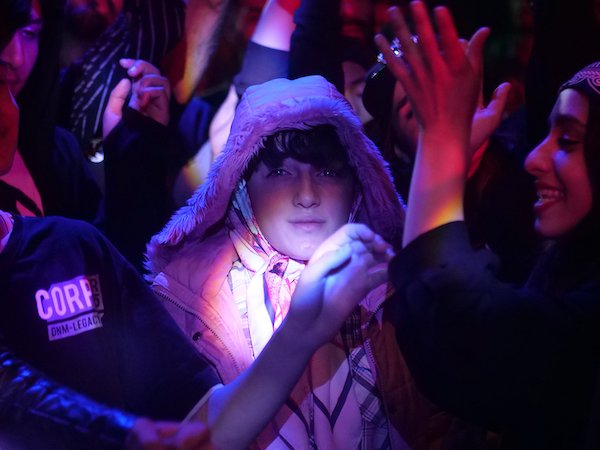Screaming Your Lungs Out In The Underground: Farbod Arebili On His Short "Forbidden To See Us Scream In Tehran"
Director/Writer/Songwriter Farbod Ardebili has written and directed several award-winning shorts. His latest effort, Forbidden To See U Scream In Tehran focuses on an Iranian woman who plans to change things by organizing an underground concert. The film sheds light on the reality that Iranian women not allowed to sing or perform publicly.
The frontwoman for an Iranian death metal band risks everything as she plots to call the cops on her own underground concert in the hopes that the raid will help her secure her asylum in another country.
The film has screened at a variety of film festivals including the Cleveland International Film Festival. We had the pleasure of chatting with Farbod about the film, its origins, death metal, and much much more!
I know the film is inspired by true events and also feels very personal, but can you talk a little bit about the concept for Forbidden To See U Scream In Tehran came about?
Yes, the idea behind the film, as you mentioned, came from my personal experience in Iran as a member of an underground metal band named "OFF." For our second album, a female vocalist joined our band, and she was absolutely amazing. As you can imagine, it was a real struggle for me to understand why she was not allowed to show her art to the rest of the world freely/. That struggle was what ultimately inspired me to write the story.
To a Westerner, it's very bizarre that women are denied the right to sing and perform in Iran. Can you talk a bit about why shining a light on this topic was an important one for you personally?
Because I know what it is like not to be able to show your art or share your ideas with the world. Because as someone who lived for most of his life in Iran, I understand what it feels like to have "impossible" dreams. Men have it bad over there, but it's much worse for women.
Death metal plays a part in the film, and it's filled with some great songs. Can you talk a bit about your personal relationship with the death metal genre and why you wanted to feature it specifically in the film?
Wonderful question. So, Metal music can be very aggressive by its nature. As a result, it is a very fitting genre for protest songs. Moreover, I liked the contrast between being silenced on the ground and screaming your lungs out in the underground.
I know you're also a songwriter. Did you play a part in the musical arrangements that feature in the film?
I wrote the songs for the film while Alberto Anaya wrote the score.
How did you find your terrific cast?
We held many auditions, and we were absolutely lucky to come across such amazing actresses and actors. I can't be more proud of our cast, as they gave life to the characters beyond what I could imagine.
What drew you to the visual arts? How did you get into directing?
I have always wanted to tell stories since I was a kid. And this urge to tell stories is the reason that I do everything that I do today, whether it's directing, writing, or composing.
What films or filmmakers have inspired you, your style, or your approach to telling a story?
My top two favorites of all time are Stanley Kubrick and David Lynch. But as different as he is, I also adore the visual style of Michael Bay.
What do you hope audiences take away from the film?
I don't want to determine what people should take away from the film. I want the film to speak for itself. However, one of the reasons I made this film was to raise awareness of the situation in Iran because I believe that being aware of a problem is always the first step of resolving it.
Do you have any future projects in the works that you can share with us?
I can't get into the details yet, but currently, we are in the talks to turn Forbidden To See Us Scream In Tehran into a feature film project.
What do you think? We want to know. Share your thoughts and feelings in the comments section below, and as always, remember to viddy well!




